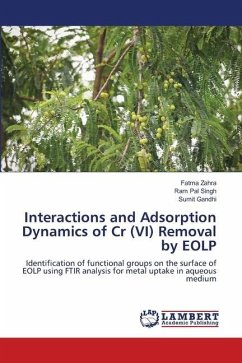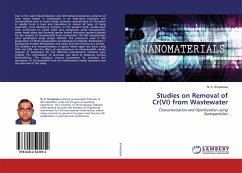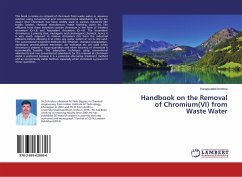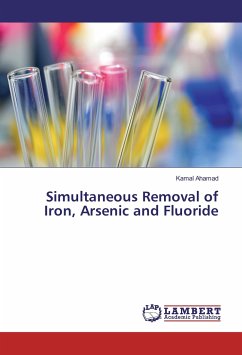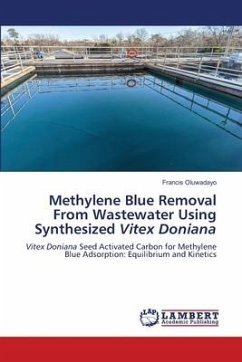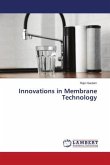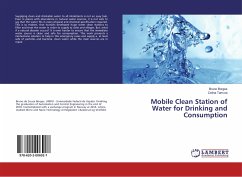Removal of Cr(Vl) is important for the safety of aqueous environment, it being carcinogenic and toxic to aquatic life. Various methods used for removal of Chromium ions include chemical reduction and precipitation, reverse osmosis and ion exchange and adsorption on activated carbon or similar materials. But, all these methods suffer from severe constraints, such as incomplete metal removal, high reagent or energy requirements, generation of toxic sludge or other waste products that require safe disposal. Adsorption techniques for removal of Cr(VI) has been reported by various researchers in literature. Major advantage of adsorption is to use in situ with proper design; it may not need any industrial process and can be integrated with many systems in most eco-friendly manner. Presented work is focused on use of raw Emblica officinalis leaf powder as an adsorbent for the removal of Cr(VI) from aqueous solution. FTIR analysis was undertaken to identify the functional groups present onto the surface of raw EOLP which may be responsible for metal uptake in aqueous medium.
Bitte wählen Sie Ihr Anliegen aus.
Rechnungen
Retourenschein anfordern
Bestellstatus
Storno

